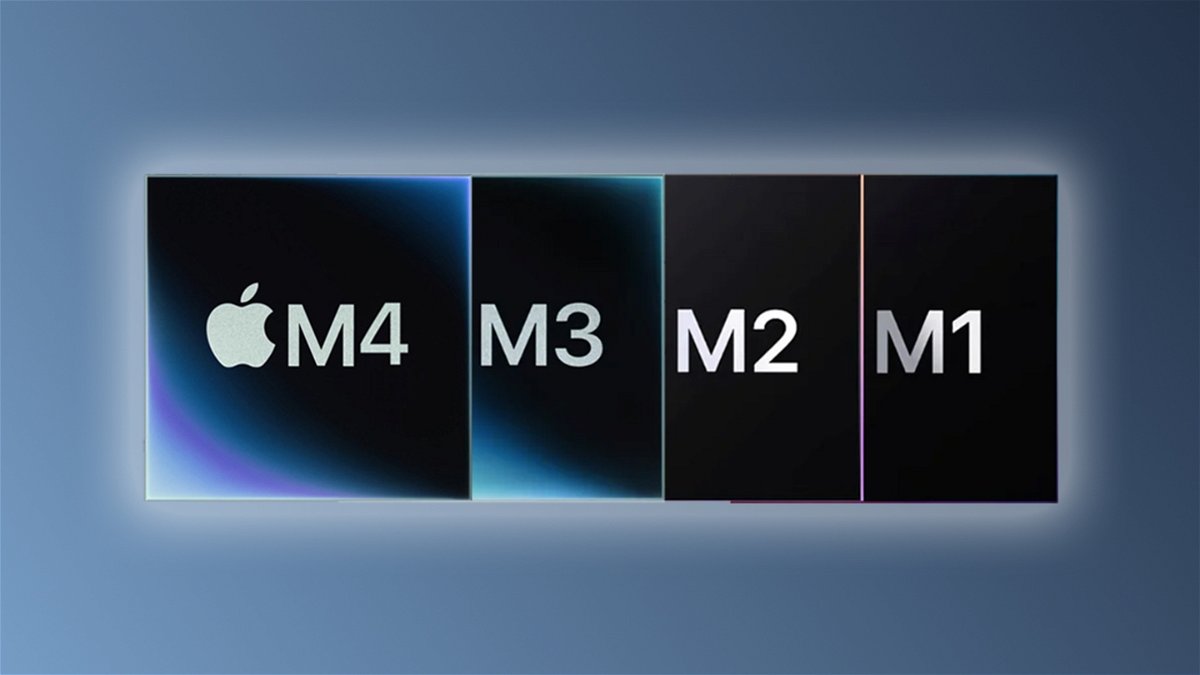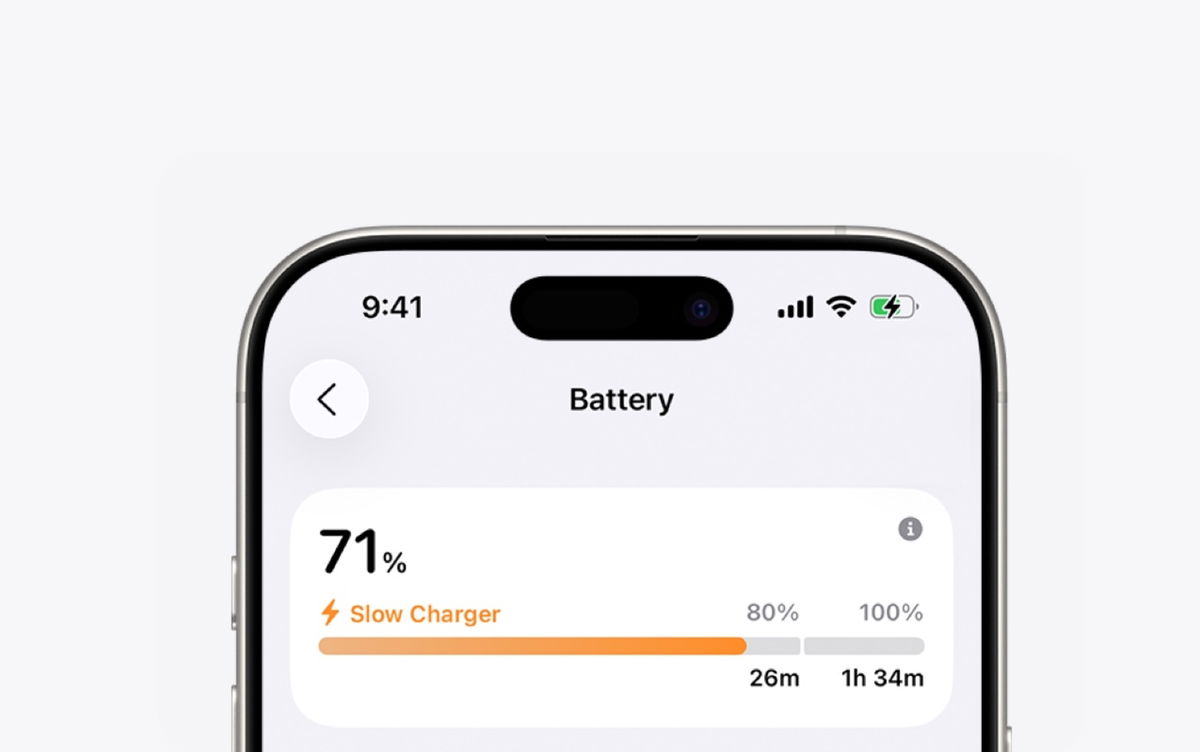Comparison of Apple chips: M1 vs M2 vs M3 vs M4 in all their varieties
We have four generations of Apple Silicon chips in various variants: we compare M1, M2, M3 and M4
We already 4th generation Apple Silicon processors and the Apple company has not stopped improving its chips since the launch of the M1 chip in 2020. These chips are available in both Macs and iPads, and if they’re characterized in any way, it’s that they increase their power in a very short time.
We have witnessed a significant evolution from the M1 chip to the M4 chip; The base model is now more powerful than the M1 Max chip from 4 years ago. Imagine the power of today’s most powerful chips. That’s why we have Compared M1, M2, M3 and M4To see how Apple chips have evolved.
M4 vs M3 vs M2 vs M1
The improvement in Apple’s entry-level chips is quite impressiveIt surpasses the results of the most powerful chips of previous generations. This is a big deal considering the vast majority of users will be using one of these chips in an iPad Air, iPad Pro or MacBook Air.
| Features | M4 | M3 | M2 | M1 |
|---|---|---|---|---|
| Lithography | 3nm (N3E) | 3nm (N3B) | 5nm (N5P) | 5nm (N5) |
| Processor | 10 cores 4 performance and 6 efficiency |
8 cores 4 performance and 4 efficiency |
8 cores 4 performance and 4 efficiency |
8 cores 4 performance and 4 efficiency |
| GPU | 10 cores | 8 cores 10 cores |
8 cores 10 cores |
7 cores 8 cores |
| Hardware Accelerated Ray Tracing | Yes | Yes | NO | NO |
| Transistors | 25 billion | 25 billion | 20 billion | 16 billion |
| Neural Engine | 16 cores | 16 cores | 16 cores | 16 cores |
| data store | 8GB 16 GB 24GB 32GB |
8GB 16 GB 24GB |
8GB 16 GB 24GB |
8GB 16 GB |
| Memory bandwidth | 120GB/s | 100GB/s | 100GB/s | 50GB/s |
| Geekbench Score | Test a kernel: 3653 Multi-core testing: 14614 |
Test a kernel: 3082 Multi-core testing: 11579 |
Test a kernel: 2598 Multi-core testing: 9734 |
Test a kernel: 2343 Multi-core testing: 8352 |
M4 Pro vs M3 Pro vs M2 Pro vs M1 Pro
Apple’s second series of chips is available in computers like the MacBook Pro or Mac mini. And the development is so surprising, M4 Pro outperforms previous M3 MaxSo now we have more power at a lower price.
| Features | M4 Pro | M3 Pro | M2 Pro | M1 Pro |
|---|---|---|---|---|
| Lithography | 3nm (N3E) | 3nm (N3B) | 5nm (N5P) | 5nm (N5) |
| Processor | 12 cores 8 performance and 4 efficiency 14 cores 10 performance and 4 efficiency |
11 cores 5 performance and 6 efficiency 12 cores 6 performance and 6 efficiency |
10 cores 5 performance and 5 efficiency 12 cores 6 performance and 6 efficiency |
8 cores 6 performance and 2 efficiency 10 cores 8 performance and 2 efficiency |
| GPU | 16 cores 20 cores |
14 cores 18 cores |
16 cores 19 cores |
14 cores 16 cores |
| Hardware Accelerated Ray Tracing | Yes | Yes | NO | NO |
| Transistors | 37 billion | 37 billion | 40 billion | 33.7 billion |
| Neural Engine | 16 cores | 16 cores | 16 cores | 16 cores |
| data store | 24GB 48GB |
18GB 36GB |
16 GB 32GB |
16 GB 32GB |
| Memory bandwidth | 273 GB/s | 150GB/s | 200GB/s | 200GB/s |
| Geekbench Score | Test a kernel: 3801 Multi-core testing: 22669 |
Test a kernel: 3102 Multi-core testing: 15280 |
Test a kernel: 2649 Multi-core testing: 14387 |
Test a kernel: 2388 Multi-core testing: 12351 |
M4 Max vs M3 Max vs M2 Max vs M1 Max
While waiting for the Ultra models, M4 Max is the most powerful chip Apple has ever made. It’s more than twice as powerful as the M1 Max launched four years ago.
| Features | M4Max | M3Max | M2Max | M1Max |
|---|---|---|---|---|
| Lithography | 3nm (N3E) | 3nm (N3B) | 5nm (N5P) | 5nm (N5) |
| Processor | 14 cores 10 performance and 4 efficiency 16 cores 12 performance and 4 efficiency |
14 cores 10 performance and 4 efficiency 16 cores 12 performance and 4 efficiency |
12 cores 8 performance and 4 efficiency |
10 cores 8 performance and 2 efficiency |
| GPU | 32 cores 40 cores |
30 cores 40 cores |
30 cores 38 cores |
24 cores 32 cores |
| Hardware Accelerated Ray Tracing | Yes | Yes | NO | NO |
| Transistors | 92 billion | 92 billion | 67 billion | 57 billion |
| Neural Engine | 16 cores | 16 cores | 16 cores | 16 cores |
| data store | 36GB 48GB 64GB 128GB |
36GB 48GB 64GB 96GB 128GB |
32GB 64GB 96GB |
32GB 64GB |
| Memory bandwidth | 546GB/s | 300 – 400 GB/s | 400GB/s | 400GB/s |
| Geekbench Score | Test a kernel: 4051 Multi-core testing: 26362 |
Test a kernel: 3128 Multi-core testing: 20928 |
Test a kernel: 2748 Multi-core testing: 14679 |
Test a kernel: 2388 Multi-core testing: 12629 |
As we see, The evolution of Apple chips has been nearly unstoppable. Four years ago it was difficult to imagine the power they managed to develop in such a short time. Apple has almost no competitors on the market that barely manage to match the power of the M4 by including so many cores.
you can follow iPadize yourself on Facebook, WhatsApp, Twitter (X) or check our Telegram channel to stay updated on the latest technology news.
Source: i Padizate











